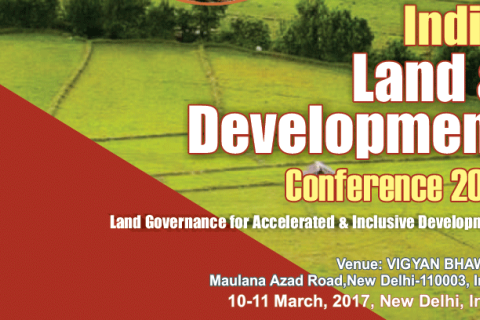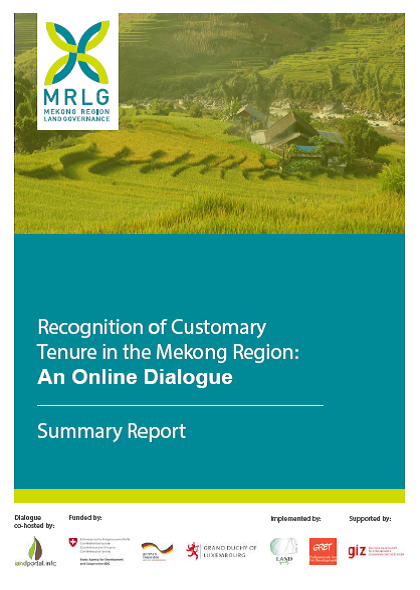
Topics and Regions
Neil Sorensen joined the Land Portal as its Communications Specialist in October 2015. He has extensive experience leading communications for international organizations and developing relationships with civil society, donors, intergovernmental agencies, the media and the private sector. Previously, Neil worked for the International Fund for Agriculture Development (IFAD) as a Governing Bodies Officer and Strategic Adviser to the Secretary of IFAD. He has also led communications for three international organizations, including the International Land Coalition, the International Federation of Agricultural Producers (IFAP) and the International Federation of Organic Agriculture Movements (IFOAM). He holds a Master’s degree in Global Diplomacy from the University of London School of Oriental and African Studies (SOAS) as well as a Bachelor’s degree with a double major in German and Sociology from St. Cloud State University.
Details
Location
Contributions
Displaying 891 - 900 of 1156Brazilians Dislike Tax Paid to Royal Descendants
The Brazilian city of Petropolis is known for its 19th century buildings and its Imperial Museum. The museum includes the summer home of Brazil's last ruler, Dom Pedro II.
But many people who live in Petropolis are upset about having to pay a special property tax linked to the country’s former rulers.
The tax is known as laudemio. It takes 2.5 percent of the value of real estate deals. The money from the tax goes directly to the descendants of Dom Pedro II, more than one hundred years after he was ousted.
South Africa: Justice and Land Rights
Putting land at the heart of radical economic transformation – a perspective from the ground
Four Indigenous Activists in Mexico Killed by Police
Federal police in the Mexican state of Michoacan killed four Indigenous campesinos Wednesday, entering their homes and shooting them on site, Ruptura Colectiva reports.
The four victims, whose names have yet to be released, were members of the Arantepacua Communal Property Collective, a grassroots organization that fights for Indigenous land rights in Michoacan. Eight members were left injured and 40 more were arrested, Mexico News Daily reports.
Witnesses also claim police threatened women and children who arrived at the scene of the murder with violence.
Study finds land titles for indigenous peoples protects forests
New research provides yet more evidence that granting indigenous and other local communities formal title to their traditional lands can be a boon to efforts to conserve forests.
Deforestation is responsible for as much as 10 percent of total global carbon emissions, which means that finding effective means of keeping forests standing is crucial to global efforts to halt climate change.
Community Land Rights Prevent the Climate Crisis and Protect the Earth
Indigenous Peoples and community advocates in Brazil, Guatemala, Kenya, Taiwan, and 21 other countries to take action for community land rights, April 22-29 (Earth Day)
India Land And Development Conference, 2017
Land Governance for Accelerated and Inclusive Development
5-6 April, 2017, New Delhi, India
Summer School on Land Relations in the Mekong Region, 24-28 July 2017
The Regional Center for Social Science and Sustainable Development and the Mekong Land Research Forum will run a week-long intensive summer school on land research in the Mekong Region. The purpose of the summer school is to equip early-career academic and advocacy-oriented researchers with key concepts, access to existing research outputs, and knowledge of current land issues across the region in order to strengthen individual and networked research that is geared towards secure access to land amongst the region’s rural and urban poor.
Why Secure Land Rights Matter
STORY HIGHLIGHTS
- Only 30% of the world’s population has a legally registered title to their land.
- As discussed at the Land and Poverty Conference 2017, secure land rights are important for reducing poverty and boosting shared prosperity at the country, community, and family levels.
- The World Bank supports countries to secure land rights for their populations, especially women, Indigenous Peoples, and other vulnerable groups.
Summary Report: Recognition of Customary Tenure in the Mekong Region
This dialogue provided a way for the land community to collaboratively explore challenges and opportunities related to the recognition of indigenous, ethnic minority and customary tenure rights in the Mekong region in order to:
Land Information Ecosystem Declaration
On March 20, 2017, a group of individuals from a broad range of institutions and organizations that focus on improving land governance around the world hereby commit to promote and bolster data-sharing efforts within the land sector, with the hope that such action will catalyze positive changes in the area of land governance and lead to the achievement of the Sustainable Development Goals (SDGs). These individuals agreed on the following declaration:










